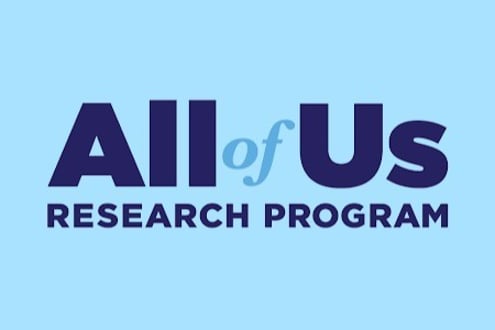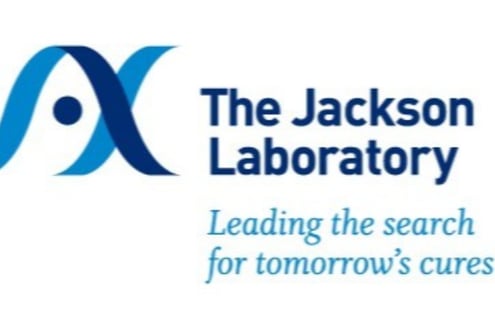Signs of an Inherited Mutation
Signs of an in a Cancer Gene
If you or a relative have been diagnosed with cancer, it may be due to an . People with the following situations should speak with their healthcare providers about genetic counseling and testing.
If you have been diagnosed with cancer
The guidelines recommend you speak with a genetics expert if any of the following apply to you (click on the links for more information about genetic testing guidelines for people diagnosed with different types of cancer).
- You are making treatment decisions and the results of testing will affect your options.
- You have a blood relative who tested positive for an linked to cancer.
- You have been diagnosed with any of the following cancers at any age:
- You have been diagnosed with breast cancer with any of the following:
- cancer where test results may affect your treatment options.
- high-risk, , early cancer where test results may affect your treatment options.
- () at any age.
- male breast cancer at any age.
- cancer in both breasts, or diagnosed with breast cancer more than once.
- diagnosed at age 50 or younger.
- you are of descent.
- you have one or more close relatives who have been diagnosed with ovarian, pancreatic, prostate, diffuse gastric cancer, male breast cancer, or at any age.
- you have two or more relatives on the same side of the family who have been diagnosed with breast or cancer at any age.
- You have been diagnosed with cancer with any of the following:
- cancer.
- very-high or high-risk based on pathology.
- you are of descent.
- a mutation was found during tumor testing (also called testing) that may be hereditary.
- diagnosed at age 55 or younger.
- intermediate-risk cancer with a pathology result called intraductal/cribriform histology.
- you have one or more close relatives who have been diagnosed with ovarian, pancreatic, prostate, male breast cancer or at any age.
- you have two or more relatives on the same side of the family who have been diagnosed with breast or cancer at any age.
- You have been diagnosed with colorectal cancer with any of the following:
- diagnosed before age 50.
- you have also been diagnosed with endometrial, gastric, ovarian, pancreatic, urothelial, brain, biliary tract, small intestine or certain types of skin cancer.
- tumor testing (also called testing) showed results that suggest an .
- you have a close relative who was diagnosed with colorectal, endometrial, gastric, ovarian, pancreatic, urothelial, brain, biliary tract, small intestine or certain types of skin cancer.
- You have been diagnosed with endometrial cancer with any of the following:
- diagnosed before age 50.
- you have also been diagnosed with colorectal, gastric, ovarian, pancreatic, urothelial, brain, biliary tract, small intestine or certain types of skin cancer.
- tumor testing (also called testing) showed results that suggest an .
- you have a close relative who was diagnosed with colorectal, endometrial, gastric, ovarian, pancreatic, urothelial, brain, biliary tract, small intestine or certain types of skin cancer.
- You have been diagnosed with gastric cancer with any of the following:
- diagnosed before age 50.
- diagnosed with a type known as diffuse gastric cancer.
- you have a close relative who was diagnosed with colorectal, endometrial, gastric, ovarian, pancreatic, urothelial, brain, biliary tract, small intestine or certain types of skin cancer.
- You have been diagnosed with melanoma with any of the following:
- you have been diagnosed with with 3 or more melanomas.
- you have been diagnosed with a type of mole known as a Spitz nevi.
- you have three or more blood relatives on the same side of your family diagnosed with melanoma, pancreatic cancer, astrocytoma, or mesothelioma.
- You have been diagnosed with a rare cancer.
This is not a complete list; other cancers may be hereditary too. If your situation doesn't match any of those listed above, you may still meet genetic counseling and testing guidelines based on a family history of cancer as outlined below. Speak with a genetics expert for a full assessment of your risk of an .
If you have the following family history
The guidelines recommend you speak with a genetics expert if you have:
- A blood relative who tested positive for an linked to cancer.
- A diagnosed with pancreatic cancer at any age.
- A first- or with any of the following cancers at any age:
- A first- or with breast cancer with any of the following:
- male breast cancer at any age.
- () at any age.
- cancer in both breasts, or diagnosed with breast cancer more than once.
- diagnosed at age 50 or younger.
- descent.
- A first- or with cancer with any of the following:
- cancer.
- very-high or high-risk based on pathology.
- descent.
- A first- or with colorectal cancer with any of the following:
- diagnosed at age 50 or younger.
- also diagnosed with endometrial, gastric, ovarian, pancreatic, urothelial, brain, biliary tract, small intestine or certain types of skin cancer.
- A first- or with endometrial cancer with any of the following:
- diagnosed at age 50 or younger.
- also diagnosed with colorectal, gastric, ovarian, pancreatic, urothelial, brain, biliary tract, small intestine or certain types of skin cancer.
- Two or more first- or second-degree relatives on the same side of the family with gastric cancer and any of the following:
- at least one diagnosis of gastric cancer at age 50 or younger.
- at least one diagnosis of diffuse gastric cancer.
- Two or more first- or second-degree relatives on the same side of the family with any of the follorwing:
- colorectal, endometrial, gastric, ovarian, pancreatic, urothelial, brain, biliary tract, small intestine or certain types of skin cancer, with at least one diagnosis at age 50 or younger.
- Three or more relatives on the same side of the family with any of the following:
- breast, ovarian, pancreatic or cancer at any age.
- colorectal, endometrial, gastric, ovarian, pancreatic, urothelial, brain, biliary tract, small intestine or certain types of skin cancer.
Other situations where genetic counseling and testing may be benefitial
The guidelines recommend you speak with a genetics expert if any of the following situations applies to you:
- you have had colon with the following features found on pathology:
- 10 or more adenomatous .
- 2 or more hamartomatous .
- 5 or more serrated .
- 5 or more close to the rectum.
- pathology of the after surgery found a type of precancerous change known as a serous tubal intraepithelial carcinoma (STIC) lesion.
- you previously had genetic testing, your results were negative, and either of the following situations applies to you:
- you had limited genetic testing in the past with a test that only looked for one or a few genes.
- you had genetic testing before 2014. Genetic testing has improved, and laboratories can now find gene mutations that may have previously been missed.
More Information on Genes and Cancer
Inherited Mutations and Hereditary Cancers
Learn about the connection between inherited gene mutations and hereditary cancer risk.
How Mutations are Inherited
Learn about how inherited cancer risk are passed on from generation to generation.
Participate in Genetics Research
Below are some of our featured research studies looking at genetic testing. To search for additional studies, visit our Search and Enroll Tool.


